At the forum on training and research in social sciences and humanities (KHXHNV) in the new context recently organized by the University of Social Sciences and Humanities (Vietnam National University, Hanoi), Associate Professor, Dr. Vo Xuan Vinh, Director of the Institute of Information History, said that currently, at the Vietnam Academy of Social Sciences, most of the research is political -scientific tasks, with little socialized revenue, leading to difficulty in mobilizing resources.
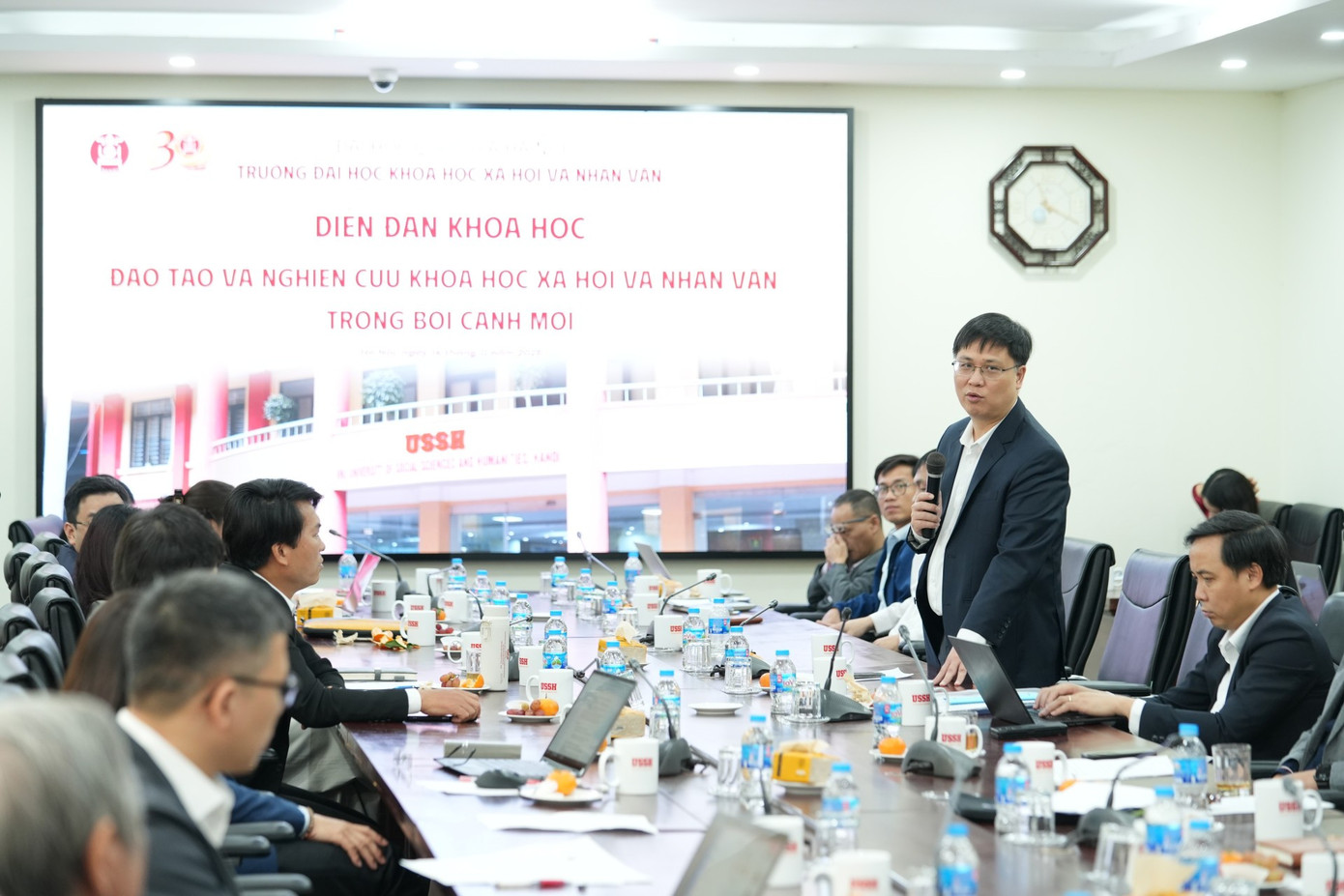
Along with that is the perception of the role of the industry in the country's socio-economic development. Mr. Vinh said that many people have asked the question: What percentage of the social sciences and humanities sector is contributing to GDP? According to him, this is an inappropriate approach.
Mr. Vinh believes that the contributions of social sciences and humanities in basic and fundamental research, consulting research, policies, etc. cannot be measured quantitatively in GDP. Mr. Vinh gives an example of historical research that provides policy warnings related to ethnic and religious issues to help stabilize society or promptly forecast risks to help avoid conflicts and instability. If we only look at the GDP weight, social sciences and humanities, especially basic research, have no chance to develop.
Associate Professor Dr. Nguyen Tuan Cuong (Institute of Han-Nom Studies) said that in current perception and policies, modern science and technology is the "bright" side; social sciences and humanities is the "dark" side, in which the least attention is paid to rare fields.
Mr. Cuong said that China has included rare social sciences and humanities fields in its list of endangered fields (fields in danger of extinction or fields that represent national identity). The state budget for these fields is about 1,500 billion VND/year, not including local or school budgets.
Young people pursuing these elite fields are given absolute priority in terms of education policies, employment, and income. Mr. Cuong believes that rare fields in the field of social sciences and humanities in Vietnam also need such state investment.
No change will self-eliminate
Associate Professor Dr. Truong Dai Luong, Chairman of the Council of Hanoi University of Culture, shared the difficulties for students and lecturers in the Social Sciences and Humanities group, including limitations in foreign languages, digital skills, limited open resources, etc. Requiring schools to change their training orientation.
Hanoi University of Culture has changed from training in purely research-based social sciences and humanities to training in applied interdisciplinary fields. For example, in the past, the reading culture major attracted very few students, but the school "changed" to new programs such as media culture, cultural industry, and cultural policy, which have attracted a large number of students.
“If there is no change, the majors will be eliminated. For example, Hanoi University of Culture has two majors: ethnic minority culture and family studies. Although they are good and meaningful, but when students graduate they cannot find jobs, so the school has to temporarily stop training,” Associate Professor Truong Dai Luong said.
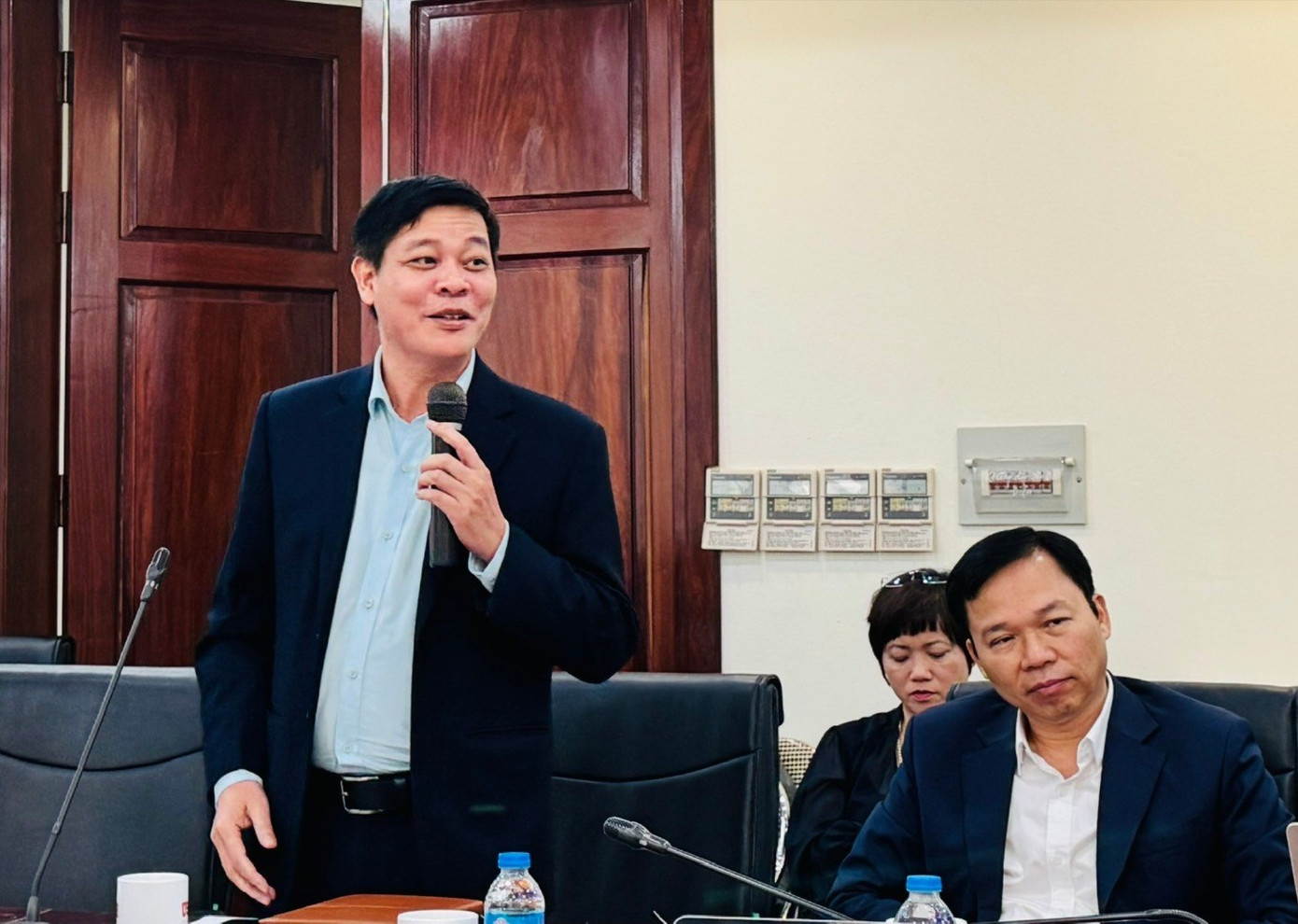
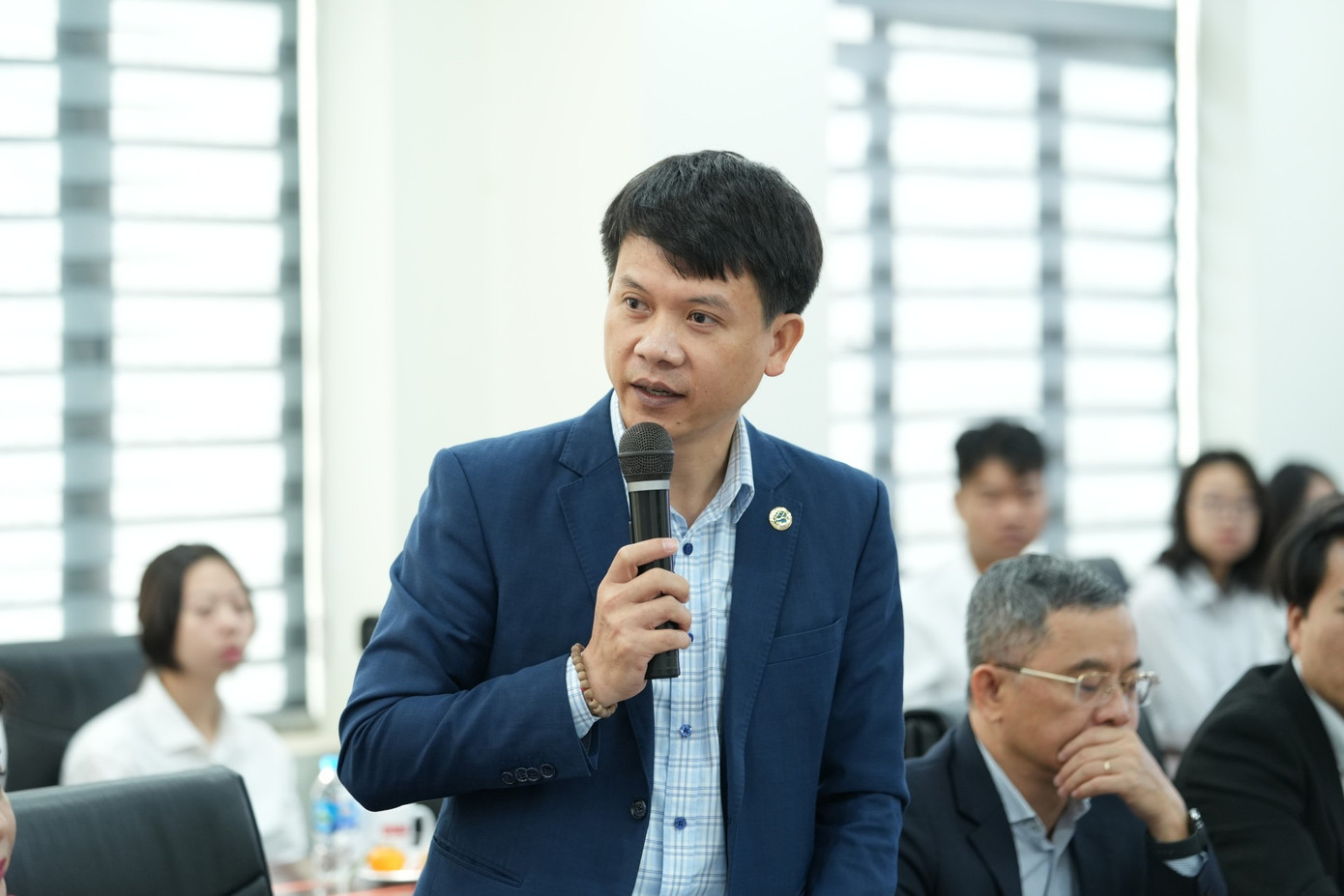


Prof. Dr. Hoang Anh Tuan, Principal of the University of Social Sciences and Humanities, said that there are specific majors that, although difficult, cannot be abandoned because they are of national mission.
For example, to maintain a year of training for 5 bachelors of archaeology, in addition to having a department/faculty, internships and practical training also require a lot of investment. Therefore, the average cost to train these 5 students is about 15 times the tuition fee.
However, the school remains steadfast in its goal of providing in-depth training in fundamental sciences, while expanding interdisciplinary areas to keep up with social development.
According to Professor Dr. Nguyen Minh Thuyet, former Vice Chairman of the National Assembly's Committee on Culture, Education, Youth and Children (now the National Assembly's Committee on Culture and Education), many people question whether social sciences and humanities are "unrealistic" and do not contribute to GDP growth.
Mr. Thuyet affirmed that the mission of Social Sciences and Humanities is to conduct scientific research and training to serve the country's development goals. First of all, it is to research and change the economic structure of Vietnam. Currently, the country's economy mainly exploits raw resources, real estate, tourism and services; there are no economic sectors that compete with the world. Social Sciences and Humanities must find a way to influence and change the current economic structure. If the economic structure does not change, it will be difficult for the country to develop.
Or the trend of artificial intelligence in socio-economic life, Social Sciences and Humanities must study its risks to the existence and development of the country. Or the impacts on society when English becomes the second language.
Dr. Nguyen Thanh Trung, Deputy Director of the Department of Social Sciences, Humanities and Natural Sciences, Ministry of Science and Technology, assessed that at this time, Social Sciences and Humanities is having a turning point with many new points. Currently, the State invests heavily in science and technology organizations, including 2 national universities. The Law on Science and Technology was issued, basically focusing on investment and capacity building for science and technology organizations.
It can be said that policies are opening up many opportunities for social scientists. Previously, spending on science and technology was about 12,000 billion VND/year. In 2025 alone, implementing Resolution 57 of the Politburo on breakthroughs in science and technology development, the budget allocated specifically for additional technological activities to carry out the tasks of the resolution is 25,000 billion VND. But the current problem is that localities do not place many orders, so there is a surplus budget. Mr. Trung emphasized that research topics must be linked to practice, solving practical problems to overcome previous limitations of scientific research.
Source: https://tienphong.vn/tim-giai-phap-de-nganh-khoa-hoc-xa-hoi-sang-hon-post1796691.tpo



![[Photo] General Secretary To Lam and National Assembly Chairman Tran Thanh Man attend the 80th Anniversary of the Traditional Day of the Vietnamese Inspection Sector](https://vphoto.vietnam.vn/thumb/1200x675/vietnam/resource/IMAGE/2025/11/17/1763356362984_a2-bnd-7940-3561-jpg.webp)




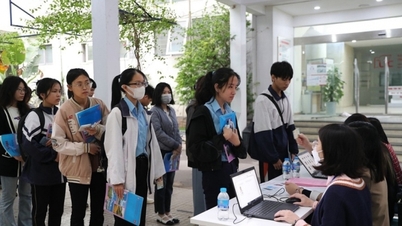



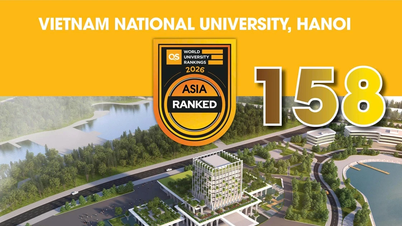



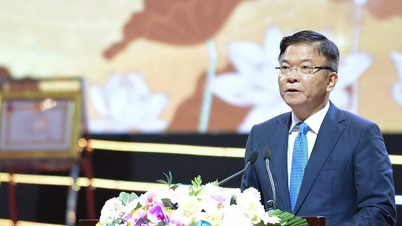
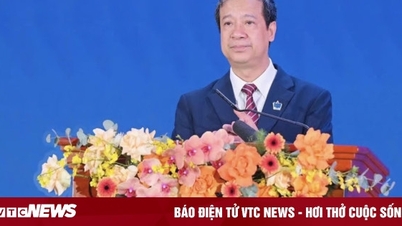

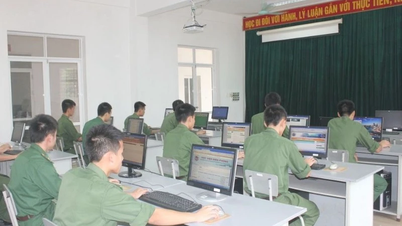

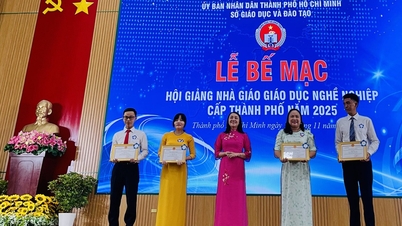
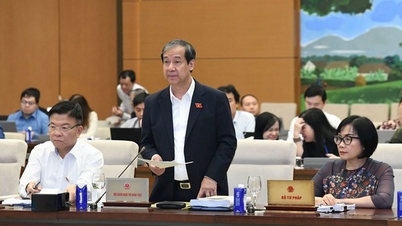

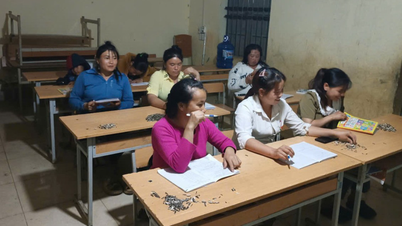





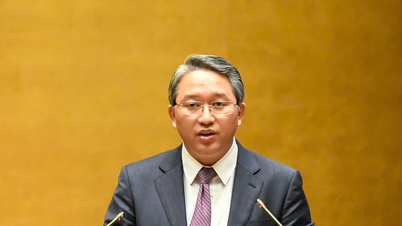
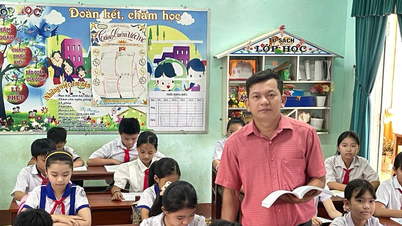






























































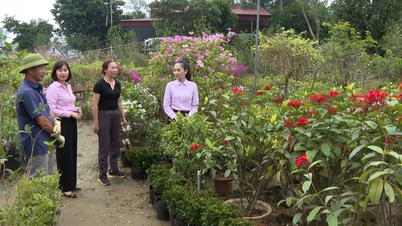

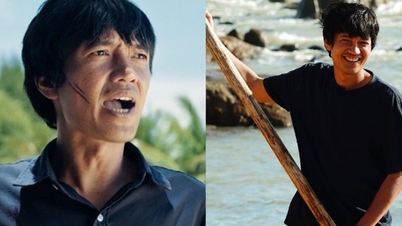















Comment (0)